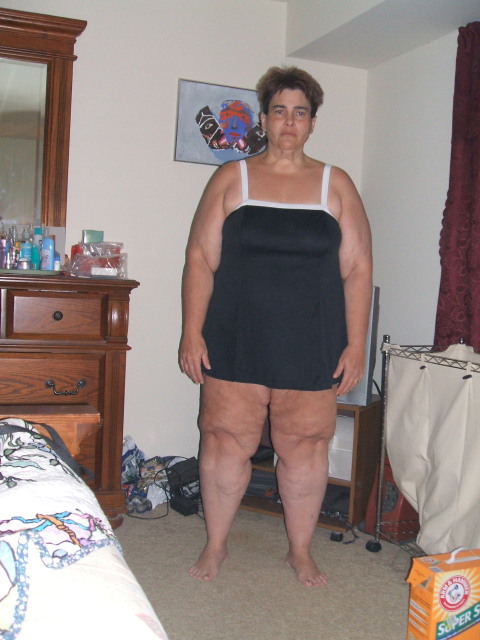18 months post op (RNY)
Question
I lost 150lbs the first year as I started at 415lbs but have stuck at the same weight for the last 6 months. Help is very hard to come by as some NHS surgeons in the UK just dismiss you after your surgery and im one of the unlucky ones. Hope to kick start my weight when i have my interim tummy tuck next month BUT Im trying hard to get my eating sorted as I feel like Ive never had surgery. If i eat more than 1500 calories a day i put on weight even though i swim for a hour, 5 days a week. What percentage of protein, carbs fat should i really be aiming at as everyone tells me different.
Mags
Dear Mags,
Let me start by saying a few words about plateaus. Everyone will plateau with their weight at some point in time. We think this happens because the body starts to compensate for malabsorption by increasing absorption of calories and some nutrients further down in the digestive system. There are also likely other issues related to adaptation of metabolism and the natural "set point" of the body. Most people start to plateau at 12 to 18 months - so basically you are right on target. That said, it doesn't make it any less frustrating.
It's great that you are already exercising - and 5 days a week is fantastic. I would suggest that you might want to trade a couple of your swimming days for weight training, however. The reason for this is that swimming burns calories, but doesn't build muscle. Muscle burns more calories than anything else and if we want to change that set point in your metabolism there is no better way than to build some muscle. If you have chosen to swim because of joint pain or other health issues I would suggest enlisting the help of a physiotherapist who can show you ways to lift weights without hurting yourself. There are also weights that you can use in the pool which would be another option - although I don't think they are quite as good.
As far as optimal diet goes:
1) I suggest that you keep a diet journal if you don't already. The web site fitday.com has a great FREE online program that makes entering what you eat very easy. This way you can tell not only what calories you get, but what nutrients.
2) I would try to think of total grams of protein, not so much % protein in your diet. The general advice is usually 1 to 1.5 grams of protein per kilo of "ideal" body weight. For example, if you want to weight 170 pounds, that is 77 kilos - so 77 to 115 grams of protein per day. I usually think that 1 gram is fine, but you may want to do closer to 1.5 leading up to your tummy tuck as that will help you heal much better.
3) If you use a program like fitday.com, when you enter that sources of your protein, you will see how many of your calories are coming from protein, and how many from fat and carbohydrate. I recommend trying to keep fat to not much more than 300 calories per day if possible. You should find that this is mostly fat that is part of your protein foods. If you include something like Salmon in your diet - that will give you a lot more fat, but the health benefits in the case of fatty fish tend to outweigh the fat calories so long as you stick to a modest serving. Dairy products also have more fat, but are of great value for their calcium - so sometimes you have to look at all the benefits.) The rest of your calories should come from complex carbohydrates - vegetables, legumes, some fruits, whole grains. You want to avoid things like fruit juice, soda, white bread, pasta, sweets - ie simple carbohydrates.
4) Colleen Cook of Bariatric Support Center (http://www.bariatricsupportcenter.com/) puts out a great little series of booklets called "Back on Track." They run about $50 US (I don't know in GBP). They offer a lot of great advice - even beyond diet - for getting past that plateau.
5) Sometimes a short-term drop in your calories can be very helpful. Dropping even 250 to 500 calories/day for a few weeks or even a few months can help you get over your plateau. As long as you are keeping your protein levels up, this is very safe to do. I do not advise dropping below 1000 calories per day without physician supervision.
I hope this helps. I am sorry to hear that you have not had much post-operative support. There are a lot of great on-line support forums out there - like Bariatric Support Centers and Obesity Help - and you might really find that being able to get encouragement from other patients who have successfully gotten through their own plateaus is helpful.
Please let me know if I can assist further.
In Health,
Dr. Jacques
- Prev:post op & preg weight
- Next:Bypass Nutrition
Related Articles
-
B 6
QuestionI am seeing a chirpractor and wanted me to get off tyleno
-
OHIP funding to go to the States - quicker?
QuestionHi, my doctor recently referred me to the Humber/Etobicok
-
Assessment/process
QuestionHi Dawn. My name is Jean I am 28 years old and have been
-
I need help
QuestionIm getting what i think is what they call the Roux-en-y.
-
dangers of revising a vbg done in late 80s
QuestionI had a vbg done in late 80s then a yr later had staple d
-
Aspiration of band prior to further surgery
QuestionI had a lap-band fitted in the UK in May 2008, I need to
More Great Links

